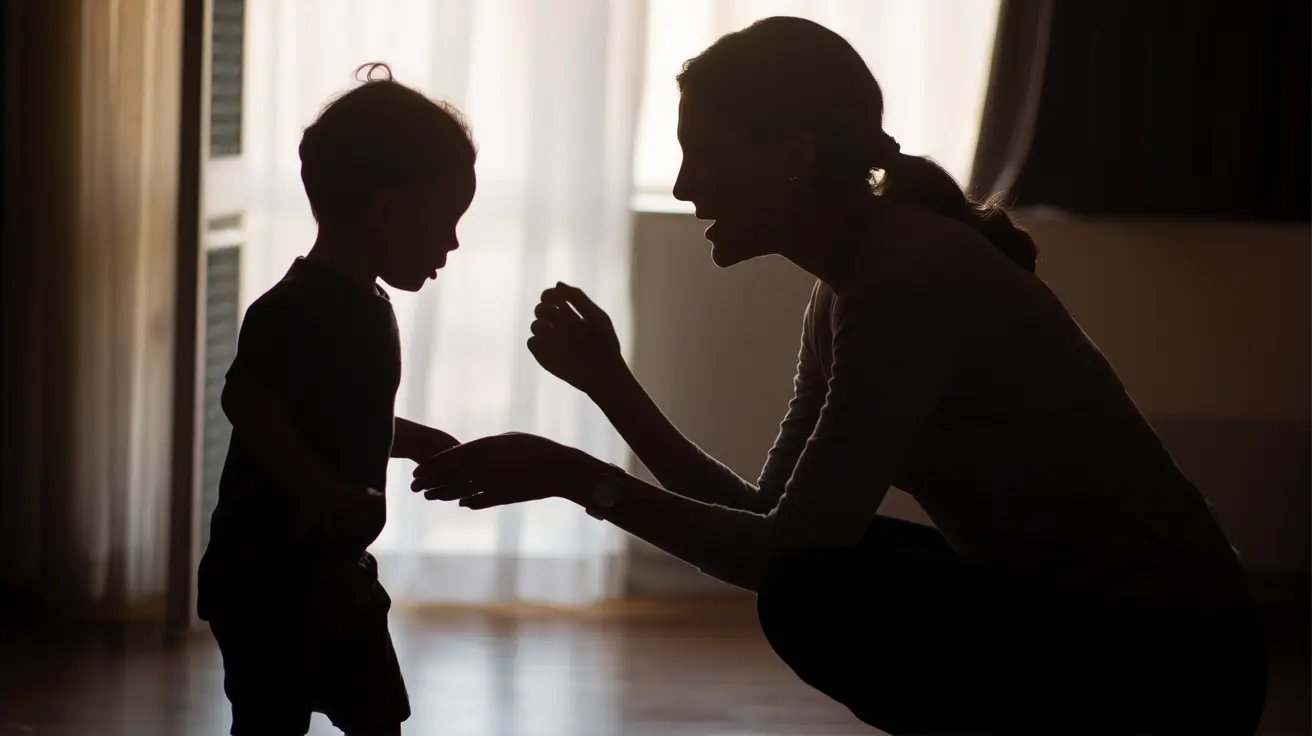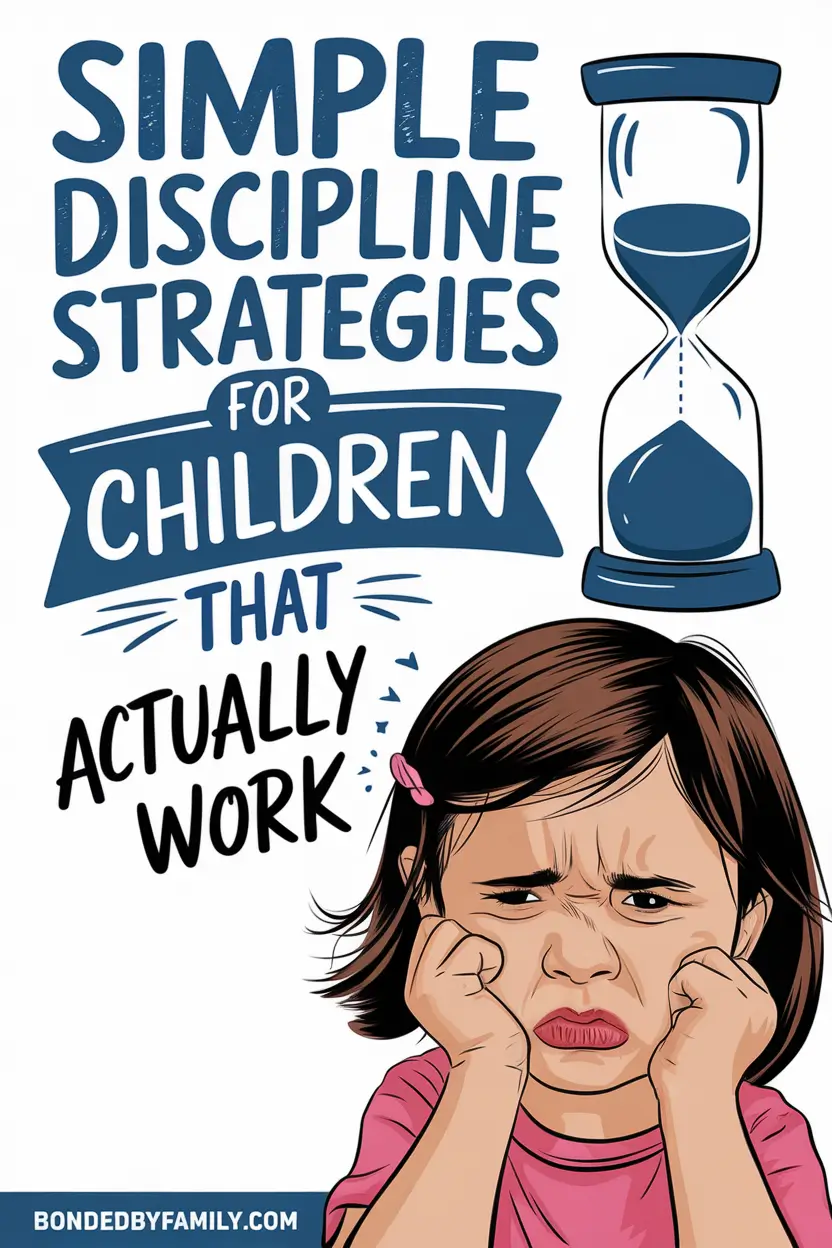Let’s dive into the complex world of disciplining children. Finding that sweet spot between firm boundaries and nurturing guidance often feels like navigating through a maze blindfolded. When it comes to how to discipline children effectively, countless parents wrestle with questions about striking the right balance between structure and flexibility.

The easy and hard parts of parenting
Let me shoot straight with you – parenting’s biggest curveball is its sheer unpredictability. You might follow every parenting manual to the letter, yet your kiddo could still veer off in unexpected directions. They might make choices that keep you up at night, face challenges you never saw coming, or even – and this one stings – choose paths that create distance between you.
Now, don’t let those thoughts drag you down into a spiral. But let’s be real for a second – raising kids is basically like playing the world’s most high-stakes poker game. You’re all in with your heart, wallet, and precious time, yet there’s zero guarantee about how the cards will fall.
But what keeps us showing up to this wild game day after day? That inexplicable, fierce love that hits you like a ton of bricks the moment you first hold your little one. While raising kids often feels like trying to juggle flaming torches while riding a unicycle, loving them is as natural as breathing.
Sure, some days they drive you absolutely bonkers, testing every last ounce of patience you possess. But when push comes to shove, you’d move mountains for those little rascals without thinking twice. There’s something almost magical about parental love – it flows freely, asking nothing in return, like a river that never runs dry.
It’s what powers you through those endless nights of diaper changes, those teenage door-slamming episodes, and those seemingly infinite wake-up calls when they’re teething. This unwavering love is your superpower, your secret sauce in this wild parenting adventure.
But here’s where things get tricky. Even this pure, powerful love can sometimes get tangled up in our own stuff. Because we’ve got these pictures in our heads about who our kids should be and how they should act, we sometimes slip into behaviors that aren’t so loving – actions that might leave tiny cracks in their tender hearts or build walls where bridges should be.
We lose our cool and shout. We forget to speak with respect. We skimp on understanding. We tighten the reins too much. We let impatience win. We use discipline as a control tool rather than a teaching moment that guides them toward genuine understanding and growth.
And that’s the heart of the matter right there.
Understanding your influence as the parent
Recently, I found myself at a funeral service where something profound crystallized in my mind. As I watched my cousin share memories of her father, her words painted a vivid picture of what truly matters in parenting.
Through tear-filled eyes, she shared something that struck me to my core: “Dad created this bubble of safety around us. His voice stayed steady, his patience never wavered, and his gentleness was constant. He was our safe harbor in every storm.”
Beyond making me question my own parenting practices, it hammered home an essential truth: children should feel completely secure with their parents, even during moments of correction and discipline.
Think about it – what’s the real purpose of discipline? It’s not about wielding power or enforcing rules. It’s about being your child’s guide through life’s complexities, helping them navigate the maze of choices and consequences.
Those lucky enough to have grown up with nurturing parents understand this instinctively. Even when facing correction, there’s this unshakeable knowledge that your parents’ love isn’t hanging in the balance. That’s the hallmark of exceptional parenting – creating an environment where discipline doesn’t threaten security. Your children know you’re in their corner, even when you’re correcting their course.
What happens when you don’t discipline

Picture a garden left untended – that’s what happens when children grow up without proper guidance. Without thoughtful discipline, kids often develop an inflated sense of entitlement, expecting the world to bend to their whims. They struggle to grasp the natural flow of actions and consequences. The concepts of seeking forgiveness or offering genuine apologies remain foreign to them. This lack of understanding can derail their future relationships and career prospects.
Like it or not, discipline isn’t optional – it’s as essential as air and water for growing minds.
Yet as someone in the parenting trenches, I’ve seen firsthand how discipline can go sideways, morphing from a teaching tool into a power play. The line between guidance and control can blur faster than you’d think.

The definition of healthy discipline and what it should accomplish
Strong, effective discipline isn’t about wielding authority – it’s about nurturing growth and understanding. When we get it right, discipline becomes less about punishment and more about cultivating wisdom. Let me break down what truly matters in this delicate dance of guidance and correction.
First and foremost, your disciplinary approach should pave the way for inner peace and moral development in your little ones. Think of it like tending a garden – you’re not just pulling weeds, you’re creating fertile soil for positive growth. Your children need to understand that their actions might need correction, but their worth remains unchanged and unconditional.
The heart of effective discipline lies in helping kids recognize a higher purpose beyond just following rules. It’s about building a framework where they understand right from wrong through a spiritual lens, seeing divine guidance as their ultimate compass.
Remember, discipline isn’t about creating distance – it’s about building bridges. Every correction should lead to stronger bonds, deeper understanding, and renewed connection. Think of it as pressing the reset button on your relationship, not putting it in timeout.
The secret sauce? A generous helping of compassion mixed with understanding. Your approach should be wrapped in warmth, sprinkled with patience, and served with a side of grace. No child should ever feel their world becoming less secure because of discipline.
Here’s what healthy discipline absolutely isn’t: it’s not your ticket to controlling every aspect of your child’s life. It’s not about showing who’s boss or flexing parental muscle. When discipline becomes a power trip, it loses its transformative potential.
Picture discipline as a loving guide rather than a stern taskmaster. Your role isn’t to rule with an iron fist but to walk alongside your child, helping them navigate life’s complex maze of choices and consequences.
Signs you’re being too strict in your parenting

You might be navigating choppy waters if you’re spotting more flaws than flowers in your child’s behavior. Let’s unpack this delicate balance.
Consider this fundamental truth: deep understanding of your child – their quirks, dreams, fears, and joys – equips you to guide them more effectively. It’s like having a detailed map before starting a journey.
Here’s why this matters so much.
When your interactions primarily revolve around corrections and criticisms, you’re missing the forest for the trees. It’s like trying to grow a garden by only pulling weeds – where’s the nurturing of the blooms? If your child feels constantly under the microscope of criticism, they might just stop trying to meet standards that seem impossibly high.
I get it – it’s draining when your child seems stuck in a loop of defiance or disobedience. But sometimes, this behavior springs from a place of defeat. If they feel they can’t win your approval anyway, why bother trying?
Want to break free from this cycle?
Start treasure hunting for the gold in your child’s character. When you spot something positive, celebrate it like you’ve found a precious gem. Make this your daily mission. Remember, just as a seed needs time to sprout and flourish, your child needs patience to grow and develop.

You’re disciplining their undesirable actions instead of their sin
Let’s revolutionize how we view discipline-worthy moments. Think of it like sorting laundry – not everything needs the same treatment.
Take this scenario:
When little Tommy accidentally knocks over his milk during breakfast – that’s just life happening. No discipline needed, just paper towels and perhaps a lesson in being careful.
But if Tommy deliberately brings his milk to the living room after being told not to, then spills it on your new carpet – now we’re dealing with a teaching moment about obedience and respect for boundaries.
The key? Don’t sweat the small stuff that comes with kids being kids. Save your disciplinary energy for genuine behavioral issues that need addressing.
You discipline because you’re offended or put out in some way
Here’s a truth bomb: discipline shouldn’t be about soothing your wounded pride or inconvenience. Some parenting approaches, while well-intentioned, can veer into manipulation territory.
If you find yourself reaching for disciplinary measures mainly when your buttons get pushed, it’s time for a heart check. True discipline should point toward character development, not just compliance with your preferences.

You desire perfection from your kids
Today’s kids are juggling more expectations than a circus performer. Between social media’s highlight reels, peer pressure, academic demands, and parental expectations, they’re carrying a heavy load. This is where really knowing your child becomes priceless.
Each child has their own capacity for handling life’s demands – like different-sized backpacks. Some can carry more, others need a lighter load. When you pile too many expectations on a child who’s already struggling, even reasonable rules can feel like crushing weights.
The secret? Listen more than you speak. But listen to understand, not to prepare your response. Your kids might be young, but they grapple with very real emotions – anxiety, fear, anger. They’re human, just like you, but without the decades of experience in managing these feelings.
You pay more attention to their behavior and not their heart
Think about your typical day with your kids. Bad behavior tends to grab attention like a flashing neon sign, right? Some children intuitively figure this out. It’s fascinating – just like moths to a flame, they learn that acting out guarantees your attention. When screen time and busy schedules dominate family life, misbehavior becomes their spotlight moment.
The real issue sneaks in when we focus solely on the surface-level actions rather than diving deeper into the emotional undercurrents. This plays out in both positive and negative scenarios.
Imagine only praising your child for getting straight A’s, without acknowledging their perseverance or work ethic. Or picture constantly correcting bad behavior without ever exploring what’s triggering it. Both approaches miss the heart of the matter.
The distinction might seem subtle, but it’s crucial. Getting to know your child’s inner world is like being an emotional detective – it takes time, patience, and genuine curiosity.
You use discipline to control rather than guide
Let’s talk about the elephant in the room – control. Whether you’re running a Fortune 500 company or managing a household of toddlers, the desire to control situations and outcomes is as human as breathing.
It’s natural, it’s common, and most times, we don’t even realize we’re doing it.
But here’s where things get interesting with discipline. Without careful attention, it can morph from a teaching tool into a control mechanism. So how do we stay on the right path?
Consider the foundational purpose of discipline – it’s about helping kids navigate the maze of right and wrong. But who defines these moral coordinates? In today’s “your truth, my truth” world, Christians approach this differently. We view God’s word as our true north, guiding our moral compass and life choices.
Think of discipline as a bridge to repentance, not a forced march. Coercing a hollow “sorry” from your child is like planting plastic flowers – it might look right, but nothing’s really growing there.
Instead, gently guide them toward genuine repentance before God. This approach creates space for divine work in their hearts. You can’t force authentic repentance any more than you can force a flower to bloom. Your role is to discipline with wisdom, correct with love, and encourage them to seek God’s guidance.
This journey requires a gentle touch and zero pressure. I’m all about empowering kids to reach their own understanding and make genuine choices. Forced prayers or mandatory repentance? That’s not the way. Remember, you’re their shepherd, not their drill sergeant. If repentance isn’t their choice today, that’s their journey to navigate.
Wrapping it up
Here’s the beautiful truth about parenting – it’s not about achieving perfection but creating safety. When your kids feel secure enough to share their deepest thoughts, accept guidance, and know they’re loved unconditionally regardless of their choices – that’s the sweet spot.
Look at how God parents us. His love remains constant, yet He doesn’t shy away from discipline when needed. That’s our blueprint right there.
Success in parenting isn’t measured by how well we control our children but by how well we understand them – their unique personalities, individual needs, and the specific guidance they require. It’s about walking alongside them on this beautiful, challenging journey God has entrusted to us.
Finding immense comfort in direct access to the Creator who knows my children better than I ever could brings peace beyond measure. It’s liberating to know I don’t need all the answers.
And perhaps the most reassuring truth? My parenting isn’t the final chapter in my children’s story. God holds them in His hands. While I’ll inevitably stumble along the way, His faithfulness never wavers.
